War & Conflict Archive
Free Newsletter
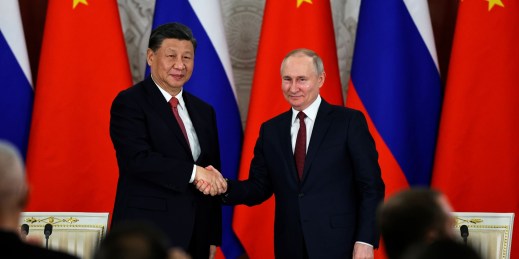
Many observers have downplayed Chinese President Xi Jinping’s trip to Moscow last week to meet with his Russian counterpart, Vladimir Putin, saying it did little for Moscow. Others argued that it even sealed Russia’s fate as a vassal of China, whose domination of their partnership is now “complete.” But this might be short-sighted.
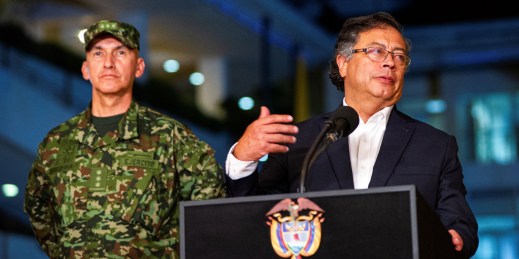
As part of his “Total Peace” plan, President Gustavo Petro has asked Colombia’s armed groups clamp down on lethal violence. While some have complied, others have traded conspicuous violence for other types of coercion, leading many to fear they are taking advantage of the government’s outreach to quietly dig in their heels.
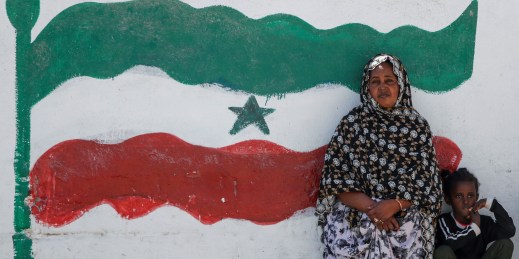
Over the course of the past decade, Somaliland’s fortunes have drastically and irrevocably changed, raising hopes that engagement with foreign powers will translate into formal recognition. Unfortunately, recent violence between security forces and a local clan in the southeast show that things are never so straightforward.
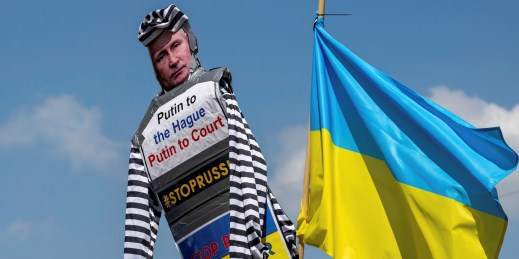
Last week, the ICC issued an arrest warrant for Vladimir Putin for the deportation of Ukrainian children to Russia since the start of the invasion of Ukraine. The ICC’s decision to focus on the deportation of children, rather than other horrific crimes allegedly committed by Russian forces, is not as surprising as it might seem.
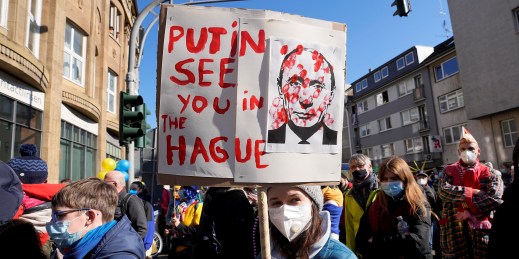
Last week the ICC issued an arrest warrant for Russian President Vladimir Putin for organizing the scheme by which Ukrainian children have been taken from their families and deported to Russia. The move has been described as “unsurprising” and “encouraging.” But there is another word that can describe the ICC’s decision: unhelpful.
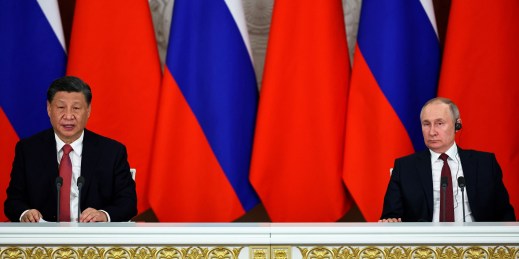
President Xi Jinping was in Moscow this week, where he met with Russian President Vladimir Putin. The visit comes just weeks after Beijing released a 12-point position paper on a political settlement to what it calls the “Ukraine Crisis.” But expectations that China is going to help broker a breakthrough in the near term are low.
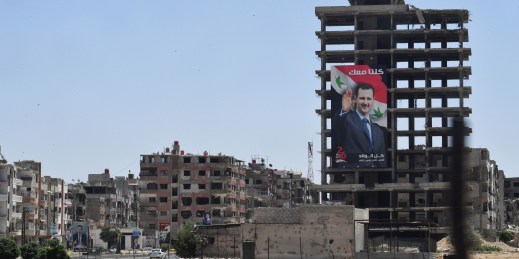
This month marks 12 years since Syria’s civil war began. The past year has been marked by a string of political wins for the Syrian regime but has brought greater misery for Syrians. Despite the regime’s triumphant rhetoric, Syrian society is overwhelmingly focused on survival alone, with no hope for economic recovery or reconstruction.
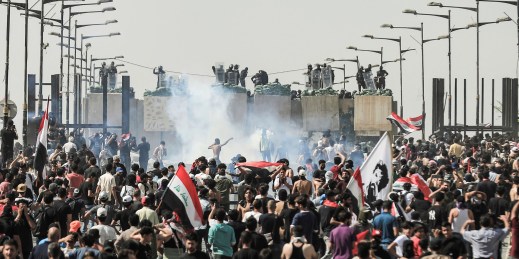
It has been 20 years since the U.S. led an illegal invasion of Iraq to topple the regime of Saddam Hussein. The invasion unleashed a series of catastrophes for Iraq, the wider Middle East and the world. These catastrophic outcomes remain with us today, and it is worth reflecting on the most enduring ones and their effects.
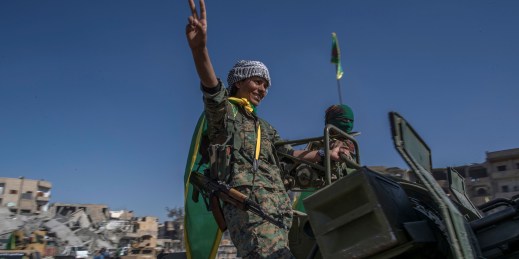
Many popular accounts of women’s experiences during war exoticize and decontextualize female fighters, while underscoring women’s vulnerability and victimhood at the expense of their agency. But these narratives can have high costs, making a more holistic understanding of women’s contributions to armed groups urgently necessary.
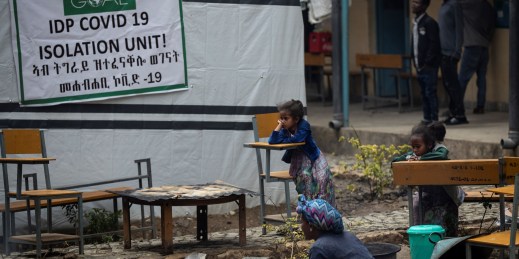
Three years ago, U.N. Secretary-General Antonio Guterres called on warring parties to “put armed conflict on lockdown” to allow health workers to fight COVID-19. The call for a global cease-fire created a glimmer of hope during the early days of the pandemic. But today it feels like a historical footnote from a very different time.
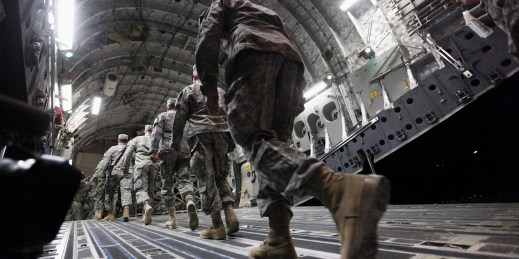
What do we mean when we talk about the Iraq War? In the flurry of appraisals marking the 20th anniversary of the U.S. invasion of Iraq, the question seems particularly relevant. Most of the bitter debates that preceded, accompanied and outlived the war now seem settled. But in many ways, that apparent resolution is illusory.
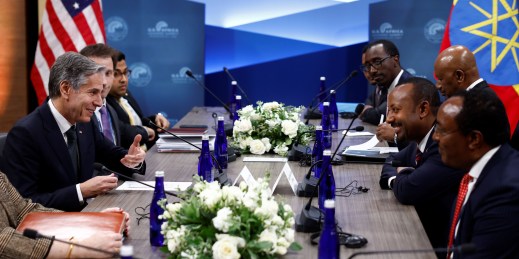
U.S. Secretary of State Antony Blinken visited Ethiopia and Niger this week, as part of Washington’s efforts to step up bilateral engagement with countries on the continent. Still, Washington’s framing of the visit is unlikely to convince skeptical African governments that the U.S. is sincere about treating them as equal partners.
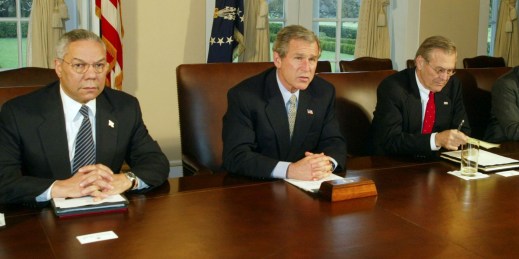
The 20th anniversary of the U.S. invasion of Iraq is sparking much introspection. Some now see it as a grave error, others still think it was the right decision and others still who never supported the war now feel vindicated. With the benefit of 20 years of hindsight, three lessons from the invasion stand out.
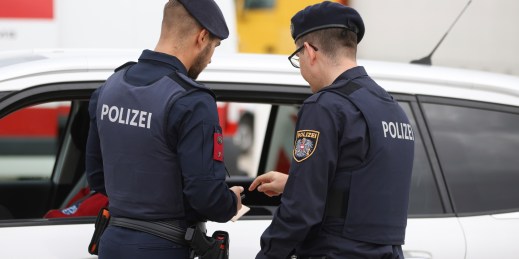
The effects of the migration surge to the EU are being keenly felt at the union’s internal borders. For months now, “temporary” border checks have been imposed to stop people-smugglers from bringing migrants into the EU via the Balkan route. Now tensions are heating up ahead of a leaders summit next week to discuss the issue.
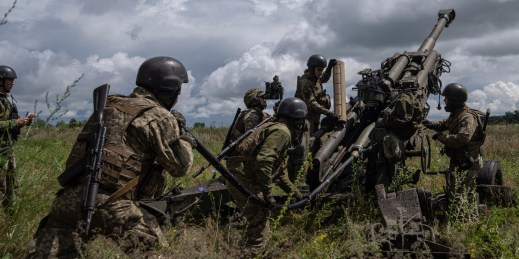
The Russia-Ukraine war has provided the U.S. military with valuable lessons, and the Ukrainian army’s successes validate much of the U.S. military’s doctrine and operational art. Yet there is also cause for concern: The U.S. might be well-prepared for the kind of war Russia has fought in Ukraine, but it is poorly provisioned for it.
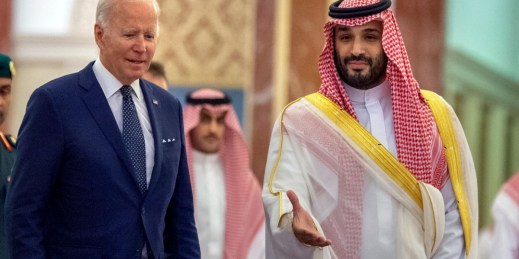
The news that Saudi Arabia and Iran reestablished diplomatic relations in a deal mediated by China startled observers around the world. Beyond the question of whether it will hold, the agreement raises another important question: Does it signify a shift by Saudi Arabia away from its alignment with the U.S. to one with China?
